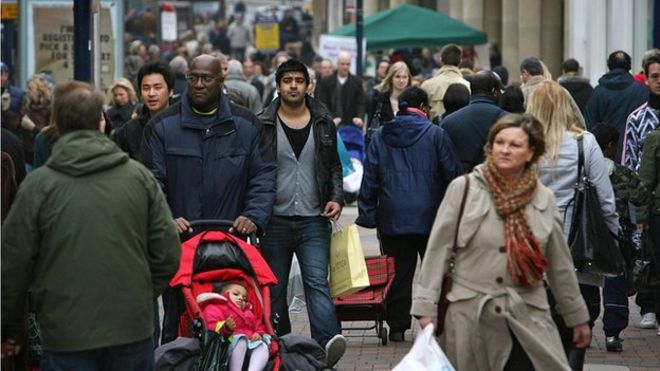Europe must be integrated society, almost everyone must be ‘a potential friend’

A BBC programme explored the efforts of the mayor of Newham to make his ethnically-diverse London borough ‘British’
David Goodhart, arguably, is the only one to articulate a sensible definition of integration (of Muslims and other immigrants) into the West.
“One appealing definition of an integrated society,” he recently wrote in The Daily Telegraph, “is one in which almost everyone is a potential friend.”
It is a profound – and profoundly true – observation.
Think about it. What makes ‘home’ your home? What made the country, city or community you grew up in, seem to be safe? It was because even if you didn’t like everyone – and they didn’t like you – everyone was a potential friend. You knew enough about them – and they about you – to potentially become friends. If you so wanted.
Mr Goodhart follows up his excellent definition of an integrated society with a thoroughly sensible suggestion about how to navigate the modern minefield that is the 21st century British and European city. This basically goes like this: respect minority rights but don’t regard them as sacrosanct.
It’s doubtful, though, that many British and European politicians will be brave enough to take this advice.
That will be a pity.
Mr Goohart, who describes himself as “post-liberal”, may have been one of the first liberal thinkers to recognize that the changing nature of British cities – you do not know who lives in #1 because Mr and Mrs Smith have moved away – made the welfare state less viable.
Social support (and cohension) is part of a social compact. You have to know enough about the people who live on your road (and in your city and country) to be willing to pay towards a social safety net for them. There must be fellow feeling. This was what Mr Goodhart suggested in a series of full-page essays in The Guardian nearly 10 years ago. He was absolutely right, even though there were some murmurs about a lurch towards illiberalism. (But that’s always the way when there’s any questioning of received wisdom to do with immigrants.)
Anyway, Mr Goodhart has some practical suggestions for respecting minority immigrant groups while apprising them of the expectations of their adopted country. To me, it seemed like a cross between modern “nudge” theory (propounded by behavioural economist Richard Thaler) and a traditional civics lecture.
British prime minister David Cameron has publicly mentioned the need to teach English to women who have lived here for decades. He has also opposed the face-covering Muslim veil. Both raise awareness and could nudge people in the right direction, without the storm that would be provoked by more hardline measures.
Mr Goodhart also points out the need to frame public disapproval of cousin marriage among some British Pakistanis as a health issue. The Bradford Royal Infirmary records that such unions produce a large number of illnesses and disabilities, he says. “The dangers need to be more widely described and greater public efforts made to prevent the practice, short of making it illegal.”
There you go then.
Such incremental steps continue the two-way process of integrating minorities gently into the mainstream. They would help make the modern British and European city more potentially friendly for both the host community and more recent arrivals.

